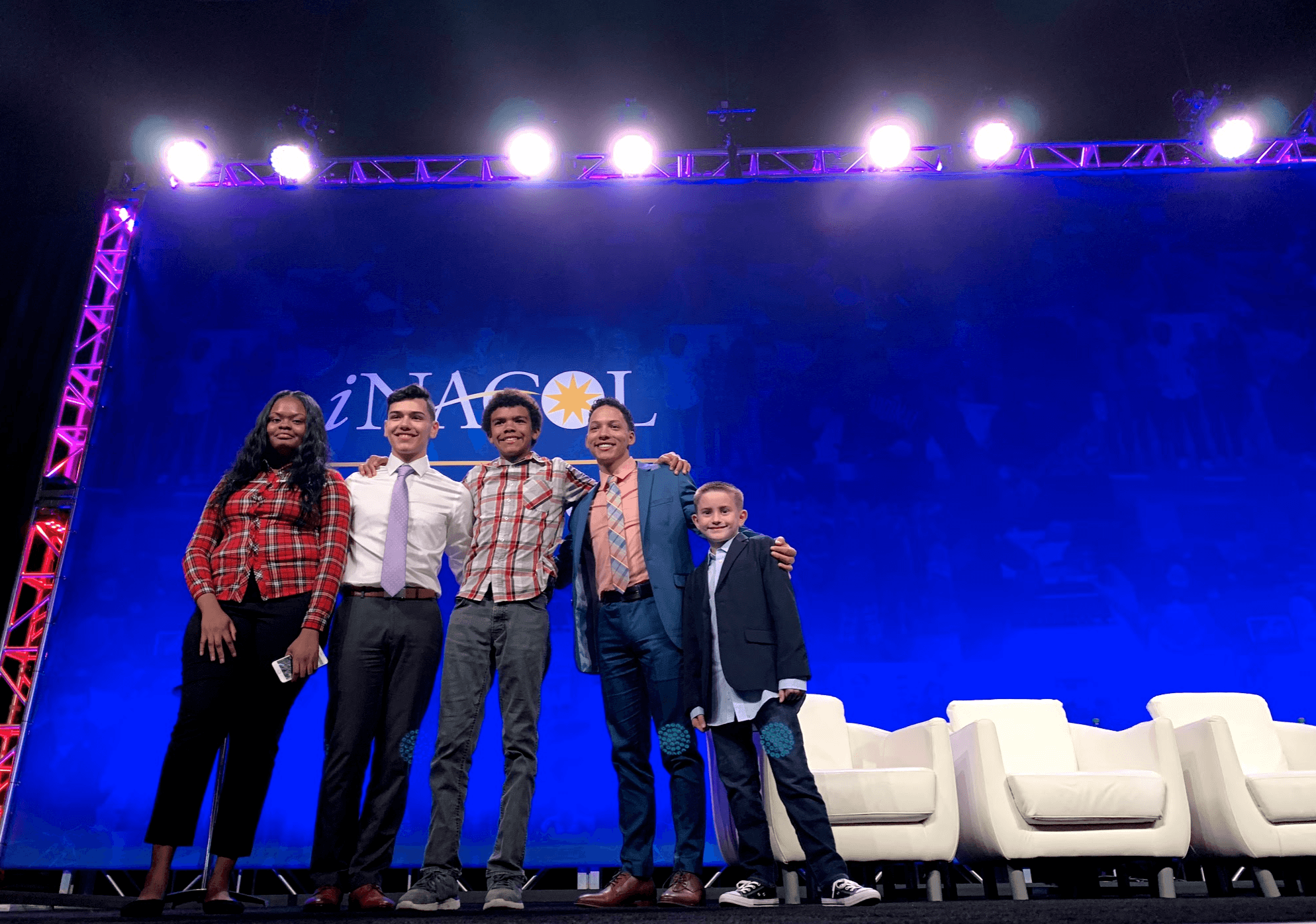Competency, Student Voice, and Old Friends
...them. That’s a true example of honoring student voice, not just paying lip service to the term. https://twitter.com/XQAmerica/status/1054465639149121536?ref_src=twsrc%5Etfw%7Ctwcamp%5Etweetembed%7Ctwterm%5E1054465639149121536%7Ctwgr%5E%7Ctwcon%5Es1_&ref_url=https%3A%2F%2Fxqstaging.wpengine.com%2Fblog%2Fcompetency-student-voice-and-old-friends%2F Student-Centered Change I also attended a session on competency-based education with Tom Vander Ark, Michele Cahill,...

As a lifelong Tennessean, I always find it a fun activity to see people’s perception of our state capital, Nashville. Cowboy hats, big belt buckles, country music, line dancing. That’s not what I associate it with, though. I think of work conferences. In Tennessee, state or national conferences rarely happen east of Nashville. For us, that means a four-hour drive to the session procession hoping to find some nuggets of information to take home. It’s not always worth it. But this time, for the iNACOL 2018 Symposium, it was.
iNACOL was the most informative and inspiring conference that I’ve had the privilege to attend. It provided validation that my educational philosophy isn’t based on fantasy and pedagogical malpractice. Seeing examples of how schools from across the country in varying economic and cultural situations have transformed into places focused on comprehensive human development and building competencies helps to further embolden me as an educator to push for those same changes in my own school.
What stood out for me was the thread of focusing on the students.
Elevating Student Voice
The first session that I attended was on Elevating Student Voice, presented by leaders from Chelsea Opportunity Academy. Their advice to understand the stories of individuals — instead of what data points say about them — and continually ask yourself how you and your school are honoring student voice was a great reminder of why I attended the symposium in the first place. We’ve all seen how the traditional system has failed many students due to issues with equity and transformation, so putting the learners in the center of fixing the problem takes the emphasis off of our conditioned methods of teaching and onto their learning.
As Chelsea developed their program they ensured it was about students and their personal definitions of success. When students weren’t attending school, school leaders’ response wasn’t to punish them but to talk to them and understand their struggles and attempt to create better learning situations for them. That’s a true example of honoring student voice, not just paying lip service to the term.
Student-Centered Change
I also attended a session on competency-based education with Tom Vander Ark, Michele Cahill, and other leaders, who discussed some of the research and results-driven work people are doing in this important area. The conversation was thought-provoking and emboldening. Poor Appalachia doesn’t afford many opportunities to young people outside of providing public schooling. So we need to ensure we are giving them the best education we can to equip them with the tools they need to change our region’s future.

That means policy and culture change. Stakeholders at all levels need to be engaged in changing current systems in order to improve our schools. Then we need to push those stakeholders to help us advocate for change on a state level. We need to start looking at emerging technology such as blockchain to allow for learnable and mobile transcripts that show demonstrated skills. That’s on top of all the unlearning that we all have to do together so that we can unify behind a vision. So…no big deal. Right?
Family Reunion
On top of all of this awesome information coming out of the sessions, I would be remiss not to mention how invaluable the networking was for my colleagues and myself. Spending time with fellow members of our XQ Community of Practice (CoP) is always deeply valued and appreciated. Hearing about all of their successes and bouncing ideas off of each other invariably helps build relationships with people who come from different lifestyles but all care deeply about the same thing. Whether it’s talking about library organizational paradigms or sharing difficult-to-believe yet true family legends, our CoP has become the coolest collection of family I could imagine.

Hearing their experiences demonstrated how the struggle to change is positive and worth the tribulations. This was most cemented by students sharing how these different types of learning environments have completely changed how they view themselves as learners and their destinies. I want that for our students. I want that for all students.
Learn more about Tennessee’s XQ Super School Elizabethton High School here.
Follow the journey of all 18 XQ Super Schools and tell us how you are joining the movement on Twitter, Facebook, Instagram, LinkedIn and here on Medium, and with the hashtag #ReThinkHighSchool.









